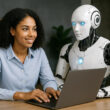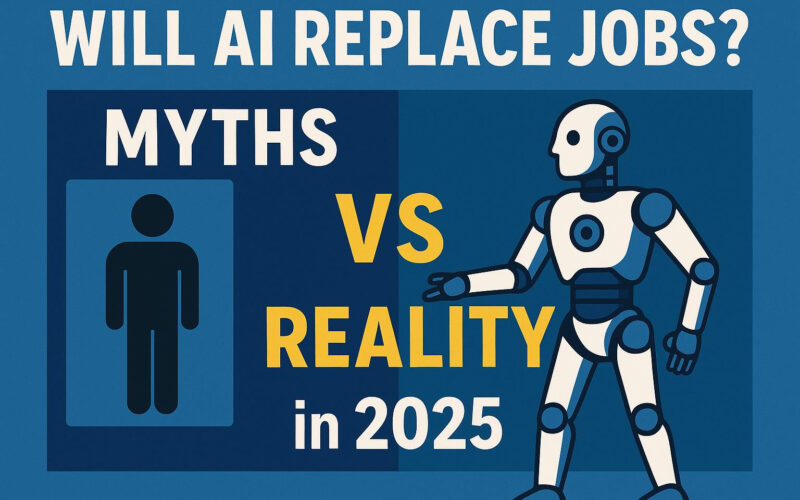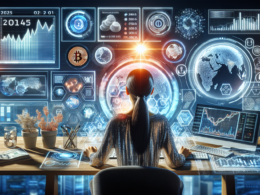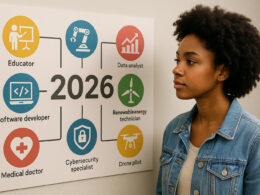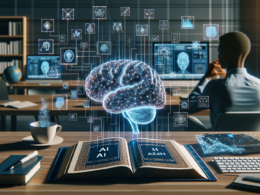Artificial Intelligence (AI) is advancing faster than ever, and with it comes a wave of questions, hopes, and yes—fears. One of the most common concerns we hear today is: "Will AI replace jobs?" It's a fair question, especially as we see AI tools accomplishing tasks that once required human intelligence.
But how much of this fear is based on fact? And what's merely a myth?
Let’s explore the real impact of AI on jobs in 2025, bust some myths, look at the opportunities ahead, and help you understand where the workforce—and your future—could be headed.
The Job-AI Debate: Where We Stand
In 2025, AI is no longer science fiction. It's showing up everywhere—from virtual assistants in our phones to advanced tools analyzing big data in seconds. Yet, this rapid progress has sparked heated conversations about whether AI will replace human jobs.
Instead of asking, "Will AI replace all jobs?" the better question might be, "How is AI changing the nature of work?"
Myth #1: AI Will Replace All Human Jobs
This is probably the biggest myth out there. Yes, AI will automate certain tasks. But replacing "all human jobs"? Not quite.
Reality: AI is Transforming Jobs, Not Just Replacing Them
Many jobs are being transformed, not eliminated. AI handles repetitive, data-heavy, or time-consuming tasks, which actually frees up humans to focus on:
- Creative thinking
- Emotional intelligence
- Problem-solving
- Strategic planning
For example:
- In healthcare, AI can analyze scans faster than a human. But it can’t replace nurses who provide compassionate care.
- In marketing, AI can suggest content ideas, but creative storytelling? That’s still very much a human strength.
Myth #2: Only Low-Skill Jobs Are at Risk
People often assume that automation will only impact low-paying or manual labor jobs.
Reality: Tasks, Not Just Jobs, Are Being Automated Across All Levels
In reality, AI is affecting tasks across a wide range of roles—blue-collar and white-collar alike.
Take a look:
- Finance: AI automates number crunching, but financial advisors are still needed for nuanced decision-making.
- Legal: AI speeds up contract reviews, but lawyers interpret complex legal scenarios.
- Customer service: Chatbots handle FAQs, but real people step in for deeper issues.
The key? Adaptability. Learning to work alongside AI tools is becoming an essential part of career growth.
Myth #3: If a Robot Can Do It, Humans Are Obsolete
With videos of humanoid robots walking, talking, or flipping pancakes, it’s easy to feel like humans are slowly being phased out.
Reality: Human Skills Still Reign Supreme
AI excels at analyzing data, spotting patterns, and performing consistent tasks. But when it comes to empathy, ethics, and creativity—AI is still playing catch-up.
Human-exclusive skills include:
- Empathy and interpersonal communication
- Ethical judgment and emotional reasoning
- Creativity and innovation
- Cultural understanding and nuance
Jobs in healthcare, education, arts, therapy, and leadership still require the “human touch.”
The Future of Work: What’s Really Changing?
Change is happening, but it’s not all doom and gloom. Here’s what you can expect as AI becomes an even bigger workplace player in 2025:
1. Job Evolution
Many roles will evolve rather than disappear. Think of them like job upgrades—new tools, faster workflows, better outcomes.
Examples:
- Teachers using AI to personalize education plans
- Architects using AI to generate 3D models instantly
- Journalists using AI to track trends and research faster
2. New Job Opportunities
Just like past tech revolutions, AI is also creating brand-new industries and roles.
Emerging roles include:
- AI ethicist
- Data annotator
- Prompt engineer
- AI trainer and auditor
- Human-machine collaboration specialist
3. Upskilling Becomes Essential
To thrive in an AI-powered world, continual learning is key. Upskilling and reskilling will be the golden ticket to staying relevant.
Key skills to focus on:
- Digital literacy
- Critical thinking
- Data interpretation
- Human-centered leadership
How to Future-Proof Your Career
Want to stay ahead of AI job disruption in 2025 and beyond? Here are some practical steps you can take today:
- Embrace lifelong learning: Invest in courses, certifications, or workshops in digital tools and soft skills.
- Learn to collaborate with AI: Instead of fearing it, understand how AI can enhance your work.
- Stay curious: Explore how your industry is evolving with AI and find ways to adapt early.
- Network and grow: Join communities, attend events, and stay updated on how other professionals are adapting to AI-powered changes.
Final Thoughts: Humans + AI = A Powerful Future
The idea that AI will replace all jobs is more science fiction than fact. What’s really happening is a shift—a transformation of how we work and what work means.
Yes, some jobs will disappear. But many more will be created or reshaped for the better. The future of work isn’t just about AI replacing humans—it’s about humans and AI working together.
We’re not heading into a jobless future. We’re entering a different kind of workplace, filled with new challenges and exciting opportunities.
Ready to Embrace the Future?
Start thinking about how AI is shaping your field and how you can leverage it to grow, not fear. Whether you're just starting your career or looking to pivot, now is the time to prepare, learn, and lead in this AI-driven world.
🚀 Stay curious. Stay adaptable. The future is ours to shape.
If you found this article helpful, share it with a coworker or friend exploring career choices in the age of AI. Looking for more insights on technology and the future of work? Subscribe to our blog and never miss a post!




